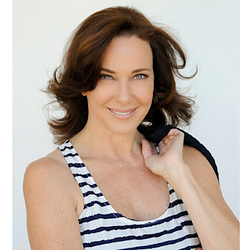
Blog post -
What Part of a Watch is Most Important?: A Metaphor for Leadership
Article by Dr. Cheryl Lentz
Tick tock. Time passes. Tick tock. The world moves forward. The question to ask is how does one use time effectively and efficiently? And . . . What does a watch and time specifically have to do with leadership?
Let’s look at the concept of a watch. Imagine yourself holding an amazing timepiece in your hand such as an
antique pocket watch—perhaps a cherished family heirloom—a timeless treasure (pun intended). If you open the back of the watch, you’ll see all kinds of amazing gizmos and what is (parts) that work together in many sizes, colors, and functions. The leadership question to ask remains: what part of the watch is the most important?
Do you know the answer? Take a moment to explore as your response is critical to understanding an important metaphor of leadership. Still thinking? Tick tock. ( . . . Jeopardy theme playing in the background). This is the leadership question I ask all of my students from undergrad to those at the doctoral level. In over 20 years of teaching, very few ever have given the correct answer.
Why such an elusive conundrum? Seems pretty simple, doesn’t it? . . . Or does it? Ready? Spoiler alert. The answer is: there isn’t one part that is most important. For the watch to work, ALL parts must work together in harmony. One part is not more important than any other. Remove one—any one—and the watch ceases to function. This is an intentional trick question and a metaphor for those in leadership to contemplate.
When we look at members of an organization, we can (or we should?) ask the same leadership question:
what part of the organization is the most important? The answer in this context often opens a very intriguing
discussion, suggesting that some people or positions might be more important than others. Is this really true? Should this be true? In our watch example, the answer is that there isn’t one part any more important than any other as ALL parts are needed for the watch to work. Period.
Isn’t this the same answer for an organization? Shouldn’t this be the same answer for an organization? Does our watch tell us more than just time? Can this metaphor help us address the often elusive contemplation
of leadership? With more than 65 different types of leadership, is one any more important than the other? Are there some who are more equal than others? Is the CEO more important than those at the front line or any other place in the organization?
Quick story. I recall a General Manager (GM) for whom I worked in the hotel business decades ago who
said, "Who knows more about being a bellman than the bellman?” (N. Mutton, personal communication,
December 1990).
Seems common sense doesn’t it? The CEO or GM doesn’t have to have all the answers. The leader only has the
responsibility for making the decisions based on knowing how to find the answers. The concept is strategic
literacy: the ability to make strategic decisions. Those at the top or in the C-suite often are the only ones
thought to possess this knowledge.
I disagree (this was the focal point of my doctoral work), as who knows more about what you do than you?
(Who knows more about being a bellman than the chief bellman of 30 plus years?)
Like our watch, no one job is more or less important than any other as all are needed to make the organization work. Also noteworthy is to contemplate the efficiency question. If there are more parts than
needed, shouldn’t we ask why there are extra parts?
There is nothing more frustrating when putting something together (or back together!) to discover extra parts, often discarded in favor of simplicity and clarity. One watch. Only the parts needed should be in
there. Extra parts will not help the watch work better. More is not always better; it is simply more.
Think of leadership as toolbox. Our goal is to use the most effective tool (strategy) for the most effective outcome (result). The secret is how to ensure that the organization has all parts working in harmony.
When we look at solving the conundrum of the watch, the best advice comes from an A-lister from Forbes.
What are the most important parts to your leadership watch? Perhaps there is need to adopt a new philosophy that might offer a different way forward in this new year. How will you show up? What kind of watch will you bring? Tick tock. The only answer that truly matters is yours.
I wish you much continued success in telling time . . .
Dr. Cheryl Lentz - The Academic Entrepreneur
International Best Selling Author & Keynote Speaker Professional
The Refractive Thinker® Press, where discriminating scholars publish.
www.RefractiveThinker.com
www.DrCherylLentz.com
